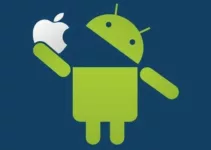Today, you can find a plethora of mobile operating systems in the market. However, for both an individual developer and a large development company, the questions of choosing the right platform is really critical.
Android and iOS are two of the biggest mobile-based operating systems in the world. So, which platform should you go for to build your application? Larger companies have access to better resources, which can be unavailable for smaller entities. Thus, the choice of platform is essential since it can either make or break business. For this reason, the majority goes for Android. If you’re thinking of getting an app for that brilliant idea of yours there are several android application development services and agencies in the market that can help you out. But before moving ahead, let’s take a look at the reasons that put Android ahead of iOS in terms of application development.
- High portability – Typical Android apps are created using the basics of the Java language, and can easily be transferred to any other mobile OS like Symbian, Ubuntu and Blackberry. Along with this, Android apps can easily be ported to Chrome OS. Amazingly, even Microsoft has announced that it will soon offer an easier way to transfer Android apps to its Windows devices.
- Android Studio – the Android Studio is one fantastic IDE, which is based on the amazing IntelliJ IDE. As you can guess from the name, the Android Studio is designed for the purpose of Android application development. It is superbly fast and highly efficient, and you can even set your Android project for a variety of devices within seconds. When the Studio was launched, initial app development was done with tools like Eclipse and other plugins.
- JavaRoots – Java is one of the most powerful programming languages, which has proven its worth in several grounds. Java is also used on a wide range of mobile operating systems, and working on it can actually open doors for other opportunities like the ability to develop apps for other OS like Windows and Linux. The same developing on iOS would require you to learn one of Apple’s own development languages like C or Swift. These languages are only used for Apple-based development, and the same skills cannot be applied to create apps for other OS. Apple might have begun accepting universal programming languages, but it’s still in nascent stages.
- Google Play Store – The apps that you create can be easily made available to download on the Google Play Store in just a few hours, however, it takes weeks to get the same app uploaded to Apple’s App Store. Also, an app can be updated several times a day after all the corrections and bug fixes, while at Apple App Store you need to go through a lengthy process of submitting new releases and updated versions. Therefore, for a first-time apps developer who constantly needs to upgrade their app, Google Play Store serves as just the right option.
- Test versions – Android versions also allow a developer to release a beta or alpha version of the app. This is made available to only a selected group of users, and if found successful is released to all. The freedom to test your app on Google Play Store based on user feedback is an amazing feat, which is not available in Apple’s App Store. After successful testing and updates, you can roll out the new version of your app to the general public.
- Use of lower configuration – For creating an iOS-based app, you need to have an iMac to develop and run tests. But, this is not the case in Android application development. A developer can create an app on any OS like Windows, Linux and even iOS. Also, an Apple app developer needs to pay a yearly fee of $99 to be able to work as a registered developer; however, an Android developer only needs about $25 to start with Google Play Store.
- More profitability – How much profit an app can generate is always a question. Regarding demographics, users of Apple devices are mostly a richer strata of the society, and thus, they are more likely to spend more money on any in-app purchases and all compared to Android users. However, in terms of profitability, Android apps have been found to be more lucrative. This is mainly because Android devices hold a substantial share of the market (about 78%) among mobile device operators. That’s more than 1.6 billion consumers compared to 395 million of iOS device users, and 46 million and 45 million for Windows and Blackberry respectively.

With all these incredible facts considered, it is easy to conclude that if starting a career as an app developer or foraying into the world of mobile applications, Android is the most suitable platform.
The market of operating systems for mobile devices is going to increase in the future. As we see ongoing transformation of highly efficient desktop operating systems to support small, compact mobile devices, you can simply imagine the power we carry with us everyday. The future seems bright for application developers as the need for helpful applications in healthcare, travel, social date, banking, e-commerce, daily utilities, entertainment, and more is huge. Apps have made the lives of city dwellers simpler and we would definitely wish to see its impact in every other area of the society.








